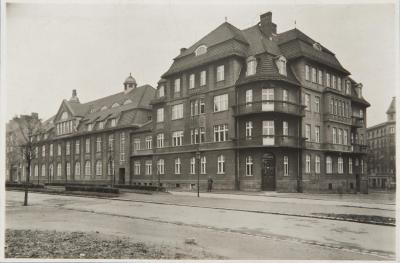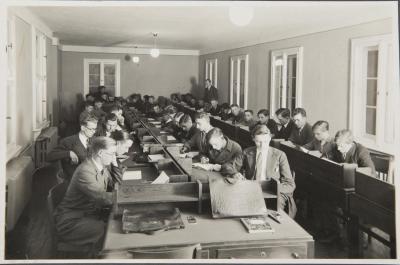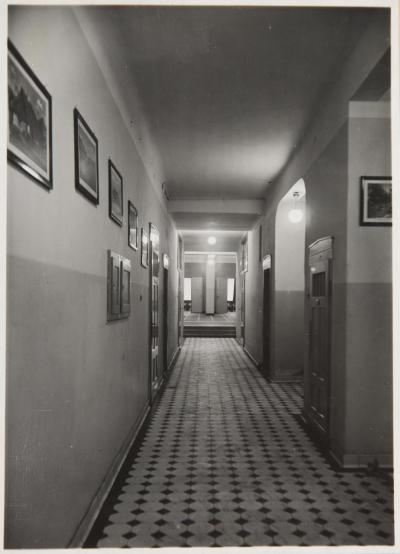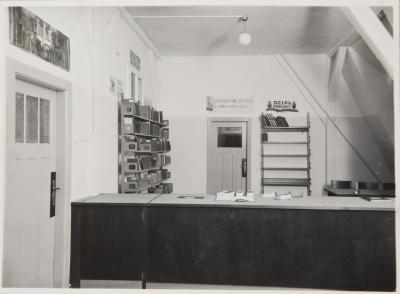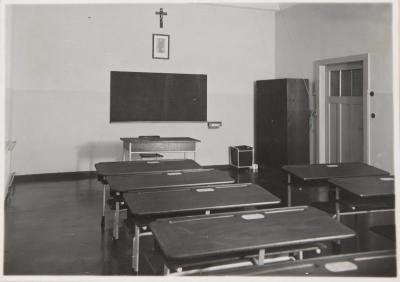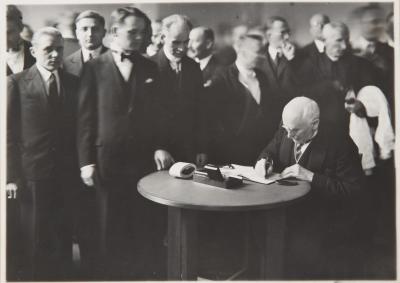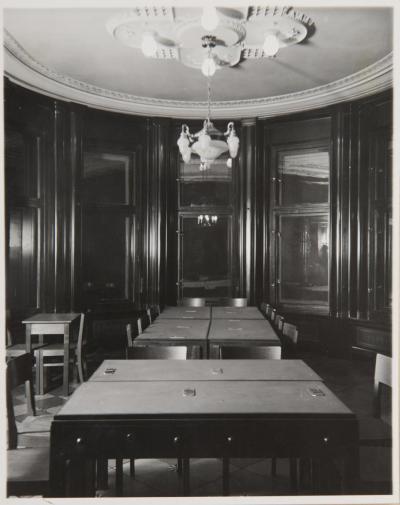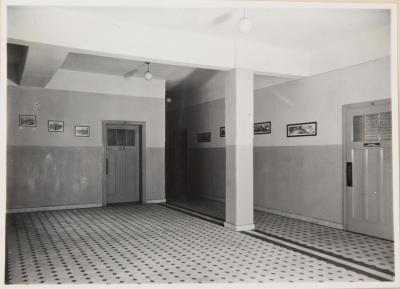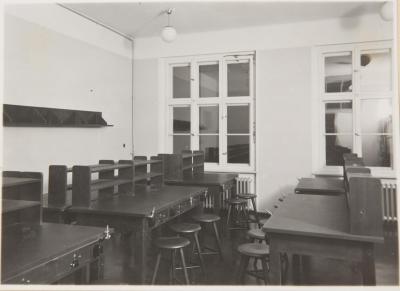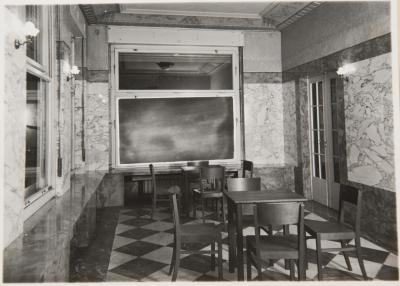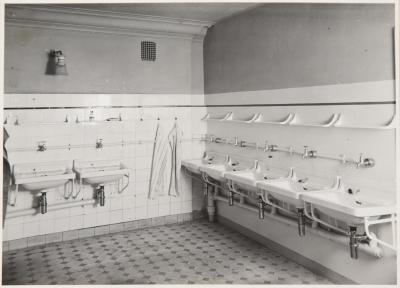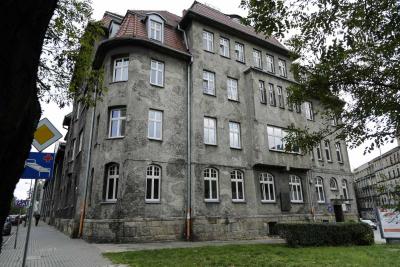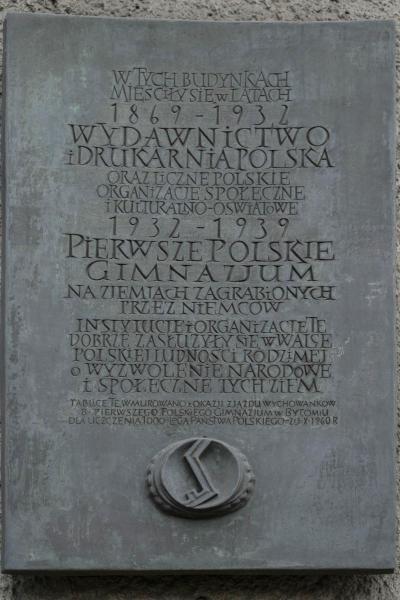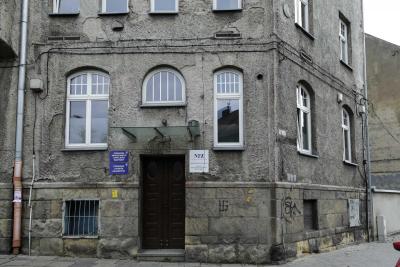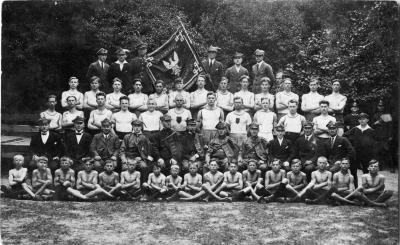The Polish grammar school in Bytom
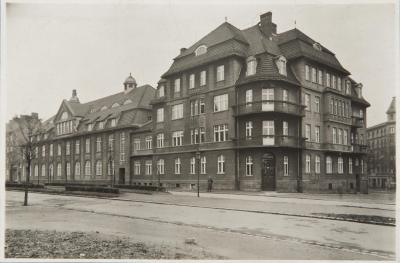
The battle for the status of a state school
Since the German authorities were setting up hurdles to prevent the opening of the Polish Grammar School, the Union of Poles in Germany (the pastor, Karol Koziołek and Władysław Wesołowski) issued a formal request for assistance to the Council for the League of Nations and the Commission in Katowice. As a result the Supreme President, Hans Lukaschek, decided to open the school on 2nd November 1932. The school was given the name, Prywatna Wyższa Szkoła z gimnazjalnym programem nauki w Bytomiu (Private Secondary School with a Grammar School Programme in Bytom).[6] It was refused a classification as a Grammar School on the grounds of a directive made in 1912, which said that it was not allowed to designate educational establishments as “Grammar Schools” if they had no public legal status.[7]
On 20th January 1933 the representatives of the Polish Catholic Society in Opolan Silesia (Polsko-Katolickiego Towarzystwa dla Śląska Opolskiego) requested the Reich Ministry to grant the school a public legal status, for this would have allowed it to have its first A-level class. Despite the huge number of interventions and petitions the Ministry declined the application, which meant that the first A-level candidates had to take their examination (according to a pronouncement by the Supreme President of the Opole district government made on 13th March 1935) as external candidates before a German commission. The refusal to allow the school in Bytom to have a public legal status triggered off a huge echo in the Polish press and even in the Polish Parliament, the so-called Sejm of the Republic of Poland.[8] The arbitrator in this unhappy affair was the Chair of the Mixed Commission, [the Swiss Federal Counsellor] Felix Calonder, who worked out a compromise with representatives of the German and Polish authorities, allowing the Bytom Grammar School the right to exist as a “middle” educational establishment and prepare its students for university from 18th April 1935. Subsequently a total of 64 A-level candidates passed their exams in Bytom between 1935 and 1939.[9]
In the years in which the Grammar School pursued its work it used a Polish title: 1932 to 1933 - Prywatne Gimnazjum Polskie (Private Polish Grammar School), 1934 to 1939 - Wyższa Szkoła Prywatna z Polskim Językiem Wykładowym (Private Secondary School with Classes in Polish), 1935 to 1936 - Prywatne Gimnazjum z Polskim Językiem Nauczania (Private Grammar School with Classes in Polish), 1936 - Prywatne Polskie Gimnazjum w Bytomiu (Private Polish Grammar School in Bytom), 1936 to 1937 - Prywatna Wyższa Szkoła dla Chłopców z Polskim Językiem Nauczania. Bytom (The Bytom Private Secondary School for Boys with Lessons in Polish); and in 1937 and 1938 in German: the Bytom OS Private Secondary School for Boys with Lessons in Polish.[10]
[6] BB, private estate, Sign. 140, correspondence (1931–1932). Polish and German newspaper articles (1932–1933): „Polska Zachodnia” No. 311, dated 8.09.1932; J. Lubos, Dzieje polskiego gimnazjum…, p. 35.
[7] The name was the reason behind the request. The idea was to justify its definition as a grammar school by listing concrete examples of similar schools for minorities in Berlin and Pomerania. Furthermore it referred to the basic principle of mutuality in the sense of the Geneva Convention and named, amongst others, the grammar school for the German minority in Królewska Huta [Königshütte]. BB, private estate, Sign. 140, correspondence (1931–1932), Letter from the Towarzystwa Szkolnego [School Society] to the Department of Churches and Schools, dated 19.10.1932; J. Lubos, Dzieje polskiego gimnazjum…, Footnote 43.
[8] BB, private estate, Sign. 141, correspondence. Schoolbook register (1934–1936). Polish newspaper article in “Polska Zachodnia” dated 27.03.1935, 28.03.1935 and 08.04.1935, also in “Gazeta Polska” dated 29.03.1935; idem, a German newspaper article in “Polak w Niemczech” 1935, Nr. 5, also in “Kulturwehr” 1935, pp. 542–555. Comprehensive quotations from German and Polish propaganda, and from the speech in the Sejm on protecting the grammar school also appear in J. Lubos, op. cit., pp. 138–140.
[9] APO, 1, Sign. 765, Gimnazjum polskie w Bytomiu [Polnisches Gymnasium in Beuthen], pp. 93–99 and 256–262; BB, private estate, Sign. 143 correspondence. Examination results (1938); APK, 683, Sign. 71, correspondence with the German Ministry of Education concerning A-level examinations (1937); Sign. 73, A-level examinations (1938); Sign. 196, examinations and additional examinations for students (1937); articles in „Nowiny Codzienne” on 25.02.1937 and 21.03.1937; J. Lubos, Dzieje polskiego gimnazjum w Bytomiu…,pp. 142–155.
[10] APK, 683, Prywatne gimnazjum z polskim językiem wykładowym w Bytomiu [Private Grammar School with lessons in Polish in Bytom) (1932–1939), B. Sikora, an introduction to the stocks, p. 1.
